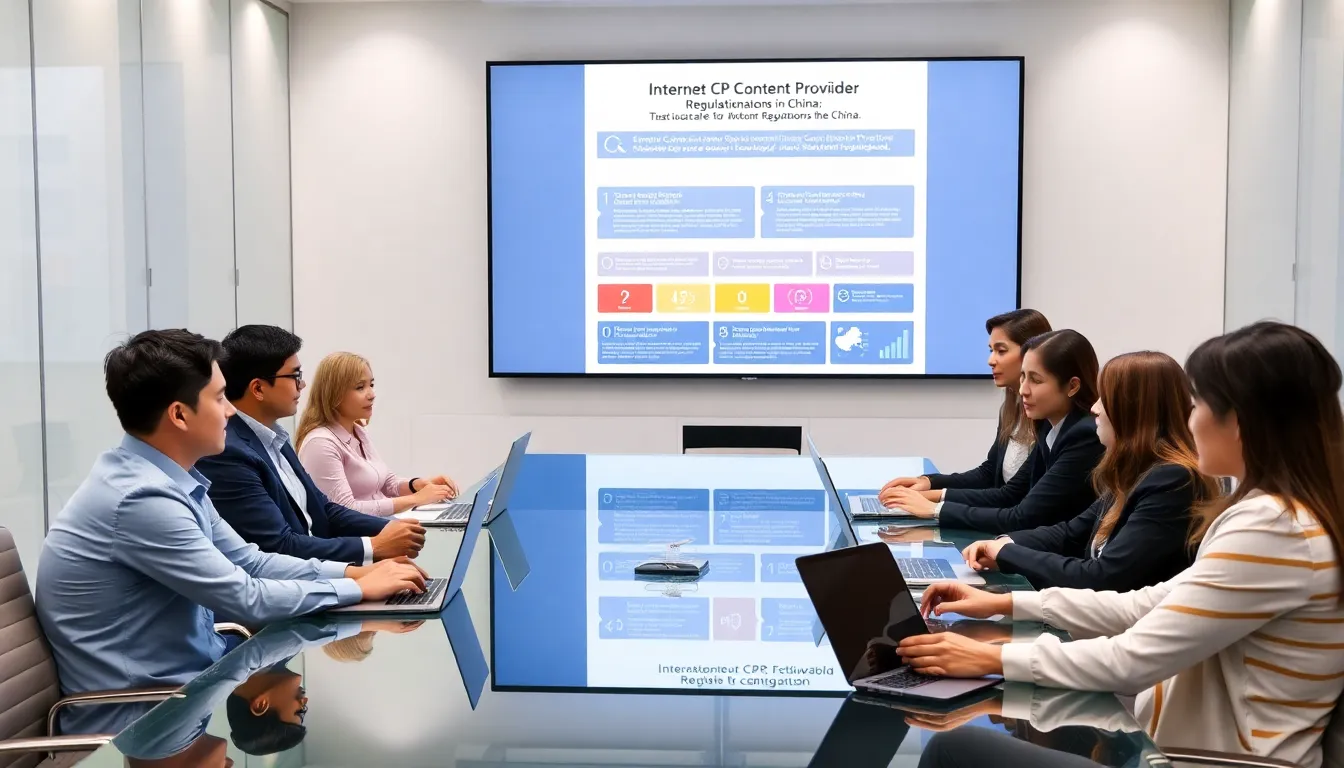Table of Contents
ToggleImagine you’re standing at the edge of a dizzying cliff, peering down into the wild world of ICP product registration. It might sound daunting, but fear not. This guide is your parachute. Whether you’re a seasoned pro or just starting out, understanding ICP registration is crucial. It’s like the golden ticket that ensures your products soar smoothly through regulatory skies without a hitch. Buckle up as we jump into everything you need to know about ICP product registration, sprinkled with a dash of wit and a whole lot of insight.
Understanding ICP Product Registration

To truly grasp what ICP product registration entails, it’s essential to define ICP itself. ICP stands for Internet Content Provider. This designation is primarily used in China, where regulatory requirements ensure that websites and online services adhere to local laws and standards. The product registration process is a way for businesses to attest that their digital offerings comply with these mandates.
Initially, any company that wishes to operate a website in China must obtain an ICP license. This license acts as a seal of approval, allowing users to access their products or services without running afoul of the law. Also, it signifies that the company is serious about operating within the legal framework of the jurisdiction.
The registration process typically involves submitting various documents and information about the business, including business licenses, website details, and sometimes even hosting information. The end goal? To navigate the intricate web of regulations smoothly and keep the online experience seamless for end users.
Importance of ICP Registration
The stakes of ignoring ICP product registration can be high. For one, without the proper registration, a business risks being shut down or facing hefty fines. This kind of disruption can severely hinder growth and tarnish a brand’s reputation.
But let’s break it down a bit further. Having an ICP registration signifies credibility to customers. It builds trust. They know that a brand has jumped through the necessary hoops to operate legally and ethically in a complex market like China. Also, for businesses looking to expand globally, an ICP registration can serve as a crucial entry point. It opens doors to new customers and partnerships, showcasing a commitment to compliance.
In essence, ICP registration isn’t merely a bureaucratic hurdle: it’s a strategic move. Companies that prioritize this aspect lay a robust foundation for their online presence and future growth.
Step-by-Step Guide to ICP Product Registration
Ready to take the plunge? Here’s a straightforward, step-by-step guide to accomplishing your ICP product registration:
1. Prepare Necessary Documentation
Gather all required documents. This often includes business licenses, proof of address, identity documents, and information about the hosted website.
2. Choose a Hosting Provider
Select a local hosting provider in China, as foreign hosting may complicate the registration process. The chosen provider often assists with filing for ICP registration.
3. Submit Your Application
Fill out the necessary application forms and submit them to the appropriate regulatory authority. Accuracy is critical, so double-check your information.
4. Wait for Approval
Patience is key. The approval process can take several days to weeks. During this time, regulatory officials will review your submission for compliance.
5. Display Your ICP License
Once approved, make sure to prominently display your ICP license on your website, typically in the footer. This reassures users that you are compliant with regulations.
Common Challenges in ICP Registration
While the path to obtaining your ICP registration is paved with good intentions, it’s not without its hurdles. Here are some common challenges businesses may face:
Regulatory Ambiguities
The regulatory landscape can be confusing. Policies sometimes change without notice, making it essential to stay informed about current requirements.
Document Requirements
Fulfilling document requirements can be daunting. Incomplete or incorrect paperwork can lead to outright denial of applications. This emphasizes the importance of thorough preparation.
Language Barriers
For non-Chinese speakers, navigating these processes can be particularly tricky. Engaging local experts can help bridge the communication gap and ensure clarity in submissions.
Hosting Limitations
Choosing the wrong hosting provider may lead to application delays or compliance issues. Hence, businesses need to do their assignments when selecting a provider.
Best Practices for Successful Registration
Overcoming the challenges of ICP registration demands strategic planning. Here are some best practices to enhance your chances of success:
Engage Local Experts
Collaborating with local regulatory experts or consultants can ease the process. They can provide insights into the latest regulations and guide document preparation.
Maintain Accurate Records
Keep meticulous records of all communications and documents submitted. This will be invaluable for future renewals or audits.
Stay Updated
Regulatory changes may affect your registration status, so regularly check updates in laws or policies related to ICP registration.
Plan Ahead
Starting the registration process well ahead of a product launch is advisable. This provides ample time to navigate potential roadblocks.
Future Trends in ICP Product Registration
As the digital landscape evolves, so too will the ICP product registration process. Emerging trends to watch include:
Enhanced Digital Solutions
With the rise of technology, automated solutions for ICP registration might become more prevalent. These could streamline the process, reducing manual paperwork and facilitating faster approvals.
Shifting Regulations
As the Chinese government focuses on strengthening internet laws, businesses will need to stay vigilant. Future regulations might impose stricter compliance measures or new reporting requirements.
Increased Focus on Cybersecurity
The shift towards a more secure online ecosystem may heighten the emphasis on cybersecurity measures as part of ICP registration. Companies must adapt their practices accordingly.




